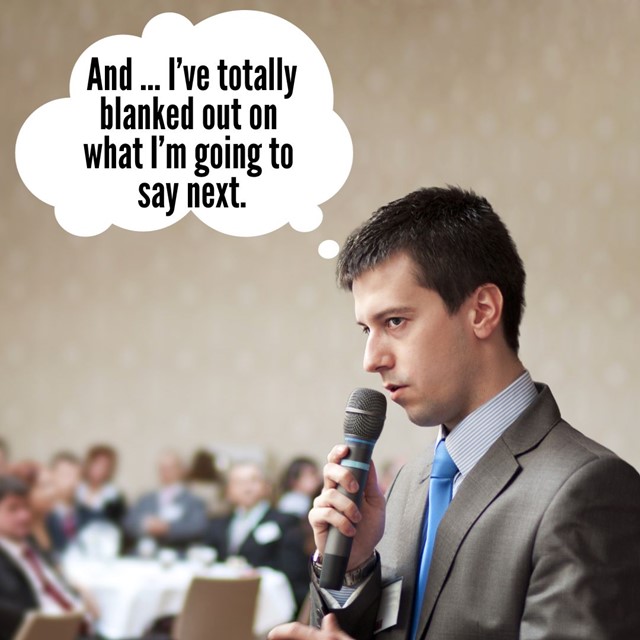
Dale Carnegie is rumored to have said: There are three speeches for every one you actually give: The one you practiced, the one you gave, and the one you wish you'd given.
When people talk to us about presentations they've given, they rarely relive the ones that went well. Instead, they want to talk about the presentation that went awry.
Yes, there are some lessons to be learned, no doubt. But we tend to forget that no speaker is perfect. In fact, perfection isn't even the goal—getting your message across is what it's about.
The next time you hit a snag or two while making a speech, it can help to remember these obvious and often overlooked truths.
1. The audience wants you to recover and succeed.
First of all, we believe most people have kind hearts. They're rooting for the speaker to do well.
Then there's the matter of self-interest. As we all know from our time as audience members, it's no fun watching someone else feel uncomfortable and struggle along. So, when you are the speaker and you're feeling the struggle is real, remind yourself: The audience is on my side.
2. You're not the first speaker to have a problem.
You may believe you're pioneering new methods of disaster in the front of the room, but it's highly unlikely you are having a problem that hasn't been experienced before.
After all, more than one president has fainted on stage. Nearly all of us have had tech challenges before and during a presentation. Speakers tell us they often lose their train of thought.
So while it may feel as if no one has ever bungled to the extent of your bungling, tell yourself a different story: Speakers have problems. Yours is just another one.
Shrug it off and move on. That's important because…
3. If you're okay, the audience tends to be okay.
How you respond to a problem during a presentation can help your audience look past it, almost immediately. If you can hit a snag, smile, minimize the problem and move on, the audience will, too. When you're a good sport, it puts the audience at ease: You may be having a problem, but they still feel they're in capable hands.
So as you move along, keep your focus on what's next—rather than on what's already happened. Try not to bring up the problem again during your speech, unless there's a good reason to revisit it.
4. The audience doesn't know what you have planned for them.
Did you leave out a paragraph? Forget to present part of a slide? Skip the story about your greatest conquest? Perhaps. But here's the more important question: Does the audience know?
Probably not. Audiences may wonder about a missing piece of information if it's essential for their understanding. But they really have no idea what's in your plan.
If you leave something out, don't beat yourself up. Make sure they have the essential information they need and keep moving along.
Learn more:
When you're feeling a little skittish after a presentation-gone-wrong, here are a few tips for getting your confidence back.
Here's a list of prominent people who've fainted on stage during speeches, proving that however bad it's going for you, it's probably gone worse for someone else.






